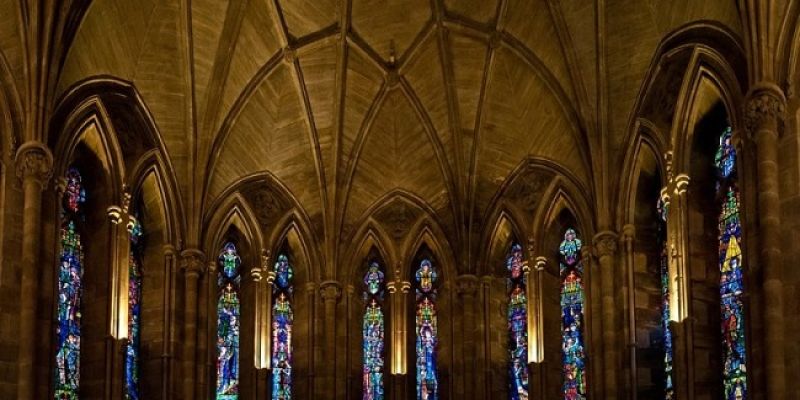
Historical Analysis Essay Questions
Question 1: Causes and Results of the Popular Rebellions from 1300-1450
In 1348, the Black Plaque struck Europe. The disease spread throughout Europe causing Black Death (Butler 1). The Mongols probably brought the bubonic plaque. Wide spread was transferred by parasites on Asian black rats through ships returning from Asia. Half of the major cities lost their populations due to widespread. Other major contributions that geared the widespread are overcrowding cities and homes as many aristocratic slept under one roofed room. Poor sanitation was rampant as streets were with garbage and human excrements. Poor health was determined, as malnutrition was rampant due to pouring rainfall that destroyed crops. Extreme cases of cannibalism were also a witness, as people became enemies with each other.
A third of the European population seemed in jeopardy as the black plaque succumbed to death toll. This affected the economic balance over Europe’s history. Workers by the countryside enjoyed greater earnings as the supply of recruits had deteriorated. Agricultural production collapsed as demand on slavery increased. No possible explanations could elaborate on the deadly black disease hence out of ignorance the Jews became an accomplice and as a result, thousands of them were murdered. Best of the priests and monks who stayed behind to attend to the sick died, as women performed the priests work.
The psychological effects of the deadly plaque were enormous as the society became phobic, and divided. Artists and writers became obsessed with death. Their natural work reflected glumness as their pieces of work on the "dance of death” portrayed skeletons dancing among the being.
The hundred years of war began when Edward III of England, a grandson to French King Philip the Fair, seized the duchy of Aquitaine by claiming the French crown. Both the French and English supported the military adventure to obstruct on domestic challenges. Both economic and population declined as tax increments on wool was used to finance the war. Control of the wool trade increased anxiety between the English and French. Priests were used to stimulate patriotism. Joan of Arc, a peasant girl helped to turn the tide in favor of the French but unfortunately, she was captured and executed (Cheney 1). War ended favoring the English holding the French port. Urban conflicts on Flanders impounded heavy revenues to peasants. Drastic famine, plague, and the high taxes were rebelled in the Jacquerie. The relation between the popular rebellion and the forms of medieval piety shook of medieval civilization as it transformed through capitalism, state, and protestant formation. Europe transformed through epic eras on tragic death toll, famine, peasant revolts, rise on religious power, periods of war (Hundred years War), and church critics.
Question 2: Main forms of late medieval piety
On 14th-15th century, Europe history on the black plaque revolved around social factors (Butler). It attacked major cities through famine, rebellion by peasants, and even war. Religious individualism became a threat to established churches. Ungodly acts influenced the popular preachers as secular worship on devotional arts was in form of images and paints. Chaucer Geoffrey, a significant century poet who spent years in the military during the hundred years of war had a wife who linked between the powers behind the throne during King Edward III. His influential poetic epics gave him credential as the government in place gave him diplomatic missions.
Development of war in the late medieval state revolved around religious indifferences. As established during the hundred years of war, Avignon popes levied new taxes and claimed over the right to appoint new bishops and priests. Assaults on churches became a challenge to authority. Lollards and Hussites made appeal on ancient past that the true definition on church was on those who lived an apostolic life. Both immorality and corruption by clergymen did not show any possible appeal that the church could be responsible for man’s salvation. Illiteracy levels diminished as more women became informed and deterred the medieval church. Roman Catholic Church did not keep vows on chastity, poverty, and obedience, as corruption seemed rampant. Corruption also befell on governmental heads, both combined a great deal on corruption dealings. Popular revolts were uprising as rebellions by peasants especially by Jacquerie and the English revolt of Great rising took place in Northern France. Conflicting gap between the rich and the poor increased chances of retaliations by the peasants, declining incomes of the poor was unsatisfactory and the heavy rise of inflation and taxes became the impounding heartfelt rebellion. Nobles spoke of authority as their illegal activities on charging high rents, and even resorting to despicable violence on peasants. The Black Death affected the church greatly. Huge population loss affected the urban grain markets. The nobles and clergies shifted to promotional freedom to their serfs.
The church failed to address on the spiritual needs of its people, hence increase number of laity movement begun to run church affairs. Religious confraternities imitated Christ and had mystic experiences. Gregory XI brings back papacy back to Rome as simultaneous election was performed. A constitutional structure was developed as the pope derives back power over Christianity pilgrims. Arrangement on marital status family was done as prostitution became rampant. The church condemned despicable acts of atrocities on homosexuality and prostitution.
The church should hold its sanctity. Death was everywhere. "God is deaf nowadays and deigned not to listen, while prayers have no power the Plaque to stay”. Piers Plowman
References
Allmand, C. T. The Hundred Years War: England and France at War C.1300-c.1450. Cambridge: Cambridge University Press, 1988.
Butler, Chris. The Black Death and its Impact (c.1300-1450). 2007. 13 May 2013
Byrne, Joseph. The black death. Goleta: Greenwood Publishing Group, 2004.
Cheney, Ian. Joan of Arc Saves the French (and the English). 1 April 2013. 13 May 2013
McKay | Hill ,Buckler ,Crowston , Wiesner. n.d.
McKay,Hill, Buckle ,Crowston ,Wiesner. A history of Western Society. Boston: Bedford/St. Martin's, 2007.
Neillands, Robin. The Hundred years war. Newyork: Routledge, 2001.
